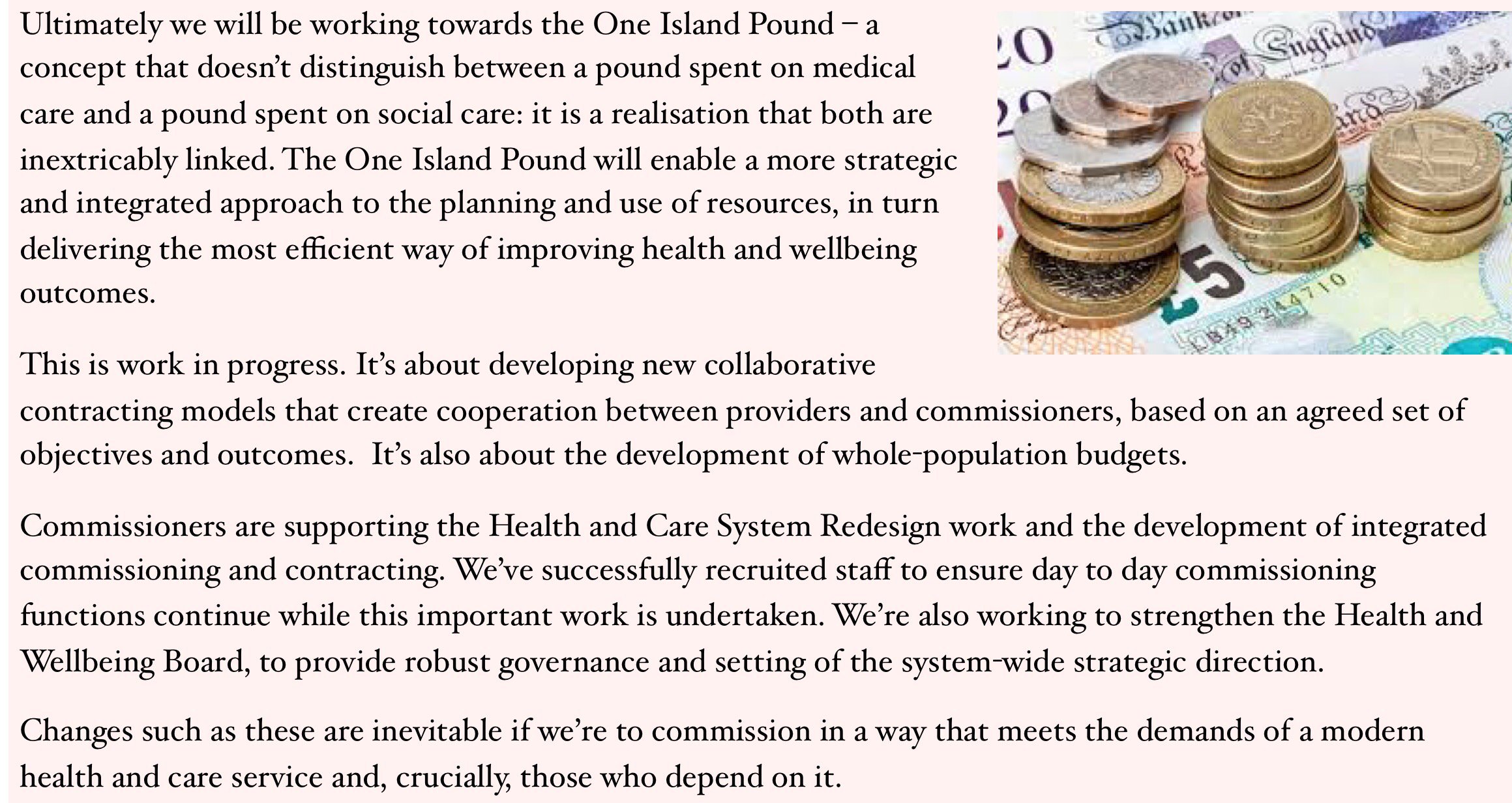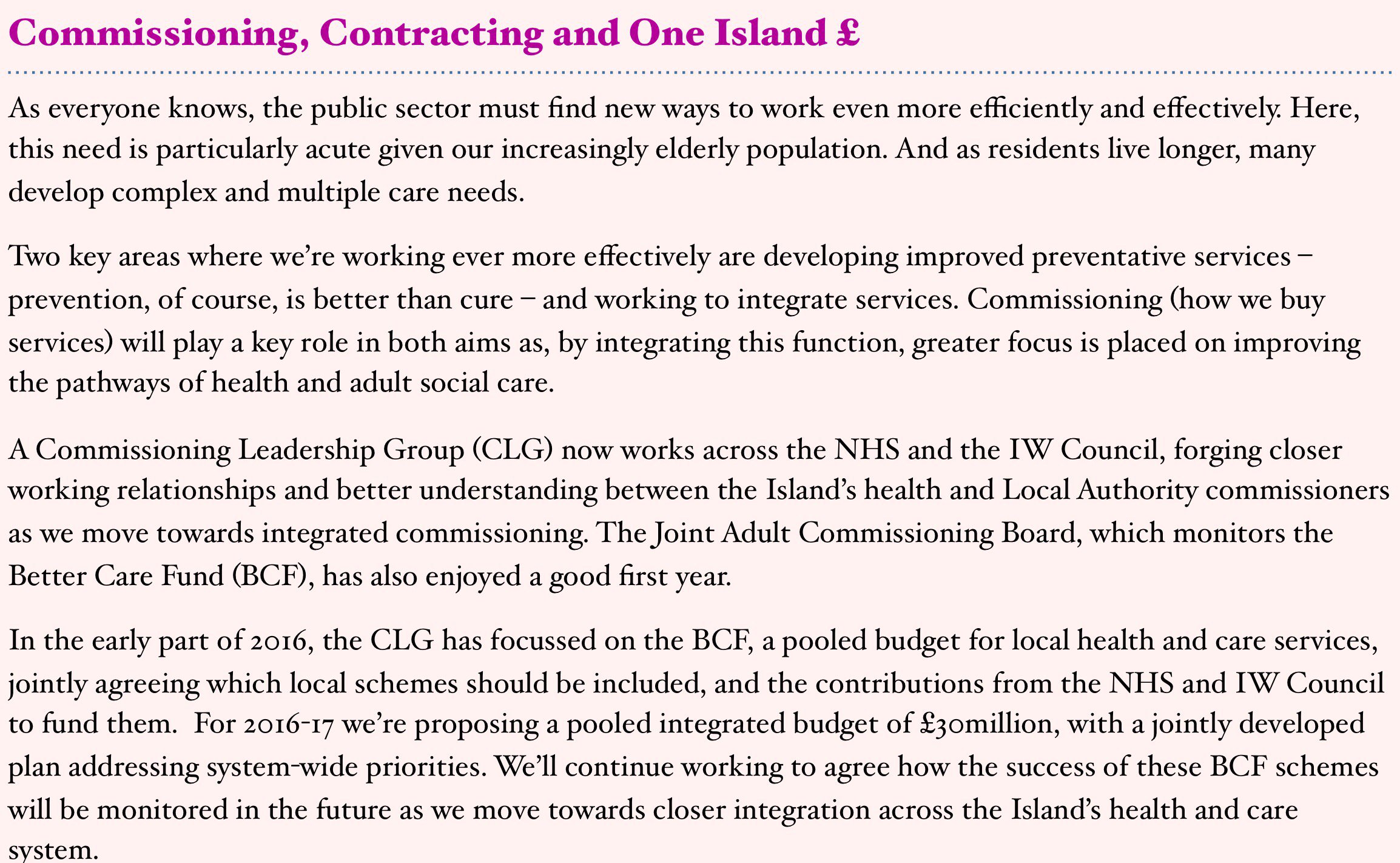What I discovered was co-ordinated health and social care service services working closely together to take into account the "whole view" of a person's needs, so that people will no longer have to meet with different agencies and will only have to explain their "story" once. They do this by:
- considering the person's needs
- sharing information and improving communications between the agencies
- co-ordinating support services around the person, their family and carers.
It will also mean families and carers have access to more information, advice and support and can help their loved ones make choices about the care they receive, and most importantly how they can live their life to the full and in the way they choose to do so. It will also mean that care and support is provided closer to home, so people can stay at home with the appropriate support they require, if for example, they become ill with an infection.
The My Life A Full Life integration programme launched last year, it was the culmination of a discussion that had been going on for some time. “I think the idea [of greater integration] on the Isle of Wight was first mooted around 2006,” says programme director Suzanne Wixey. “It wasn’t until the changing landscape with the creation of the CCG, the acute trust’s decision to apply for foundation status,and change around political leadership in the council that the whole programme came into being. The shifting landscape was the catalyst to do something differently.”
Ms Wixey explains that the demographics of the Isle of Wight make the need for such an approach particularly pressing. “We’re a third above the national average in terms of older people, so we’re ahead of the national curve there. We’re having to respond now to demands that some areas haven’t yet experienced but are expected to experience in the next five to ten years.”
One of those demands is for increased support for those living with dementia, of which the island had the highest reported prevalence rate in the UK in 2011/12. A partnership with Age UK and the private sector has led the creation of an Alzheimer’s Café, a regular informal meeting for those with the condition and their families and carers. “It’s an opportunity to get information and advice, to hear from national and local experts, and to get support,” says Ms Wixey. Meanwhile work has been underway to make the island’s largest town a dementia-friendly community. Again, this has involved a true partnership approach. The police and many local businesses in Ryde have received dementia-awareness training. So too have bus drivers. A card has been developed that dementia sufferers can show to a driver to explain their condition, and to allow drivers to know when support is needed. And there is an established ‘safe place’ for those with dementia and their carers to go (a GP practice where practice nurses are dressed in ‘dementia-friendly’ colours to help with signposting).
All of this forms part of the overall My Life A Full Life programme.

I was particularly interested in the One Island Pound project, which won't distinguish between a pound spent on medical care and a pound spent on social care - this absolutely has to be the way forward and we will be watching progress on this project very closely and report back. You can find further information here - have a browse, its inspirational stuff. http://www.mylifeafulllife.com/news-updates-2.htm
Thanks to Andy Hollebon, Head of Communications and Engagement at My Life a Full Life (Isle of Wight) (integrated primary and acute care system) vanguard for sharing the newsletter.

